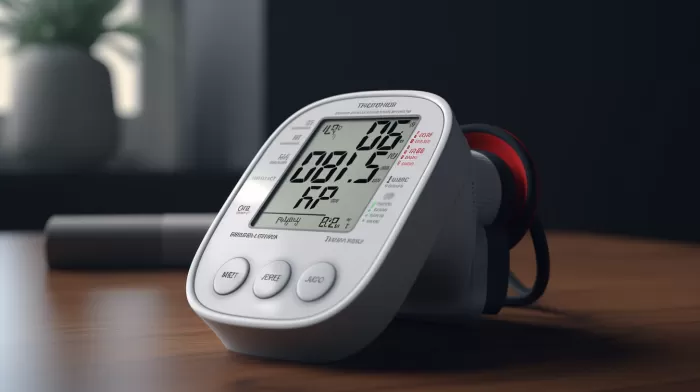High blood pressure, also known as hypertension, is an increasingly common health problem that can lead to serious and life-threatening complications. In fact, it is considered one of the most significant risk factors for heart disease, stroke, and other cardiovascular problems. It’s crucial to understand what high blood pressure is, how it affects your health, and what you can do to manage it effectively.
What is High Blood Pressure?
Blood pressure refers to the force of blood pushing against the walls of your arteries. It is typically measured in millimeters of mercury (mmHg) and recorded as two numbers: systolic pressure over diastolic pressure. The former indicates the pressure in your arteries when your heart beats, while the latter represents the pressure between heartbeats.
High blood pressure is diagnosed when your systolic pressure consistently measures above 130 mmHg or your diastolic pressure consistently measures above 80 mmHg. It is a common condition that affects millions of adults worldwide and usually develops gradually over many years.
How High Blood Pressure Affects Your Health
Researchers from Brigham and Women’s Hospital in Boston conducted a study on the impact of high blood pressure on health, tracing the outcomes for 88,000 people with hypertension. They identified the following three major ways hypertension can lead to disease and death:
- Heart problems: High blood pressure damages your arteries and forces your heart to work harder than normal to pump blood throughout your body. If your systolic pressure is consistently above 150 mmHg and you don’t take adequate measures to control it, you’re at a significantly higher risk of experiencing a heart attack or other heart-related issues.
-
Stroke: Hypertension can cause blood vessels in and around your brain to weaken, clog, or burst, leading to a stroke. A stroke occurs when blood flow to a part of your brain is cut off, resulting in brain cell damage or death.
-
Other complications: High blood pressure can also lead to other health issues, such as kidney damage, vision problems, and even cognitive decline, highlighting the importance of proper management and treatment.
Managing High Blood Pressure
The good news is that high blood pressure is a manageable condition. With the right treatment plan and lifestyle changes, you can control your blood pressure and significantly reduce your risk of complications. Here are some steps you can take to manage hypertension effectively:
- Monitor your blood pressure regularly: Knowing your blood pressure numbers is essential for determining the effectiveness of any treatment plan. You can monitor your blood pressure at home using a digital blood pressure monitor or visit your healthcare provider regularly for checkups.
-
Make lifestyle changes: Eating a healthy diet, getting regular exercise, maintaining a healthy weight, managing stress, and limiting alcohol and tobacco use can all help lower your blood pressure.
-
Take medications as prescribed: If your healthcare provider prescribes medication to manage your high blood pressure, it’s important to take it as directed and not to skip doses or stop treatment without consulting your healthcare provider.
-
Stay in contact with your healthcare practitioner: Regular follow-up appointments with your healthcare provider can help ensure that your treatment plan is working effectively and can be adjusted as needed. This is especially important if your blood pressure remains consistently above 150 mmHg despite your efforts to lower it.
There isn’t a one-size-fits-all approach to treating high blood pressure, and what works for one person may not necessarily work for another. Your healthcare provider can help you develop a personalized treatment plan based on your medical history, age, and overall health.
Conclusion
High blood pressure is a common but potentially dangerous condition that can lead to heart problems, stroke, and other serious complications. However, by taking action to control your blood pressure, you can significantly reduce your risk of these health issues and enjoy a better quality of life. Remember that early detection and treatment are crucial in managing hypertension, so don’t delay in getting your blood pressure checked and working closely with your healthcare provider to find the best course of action for you.



